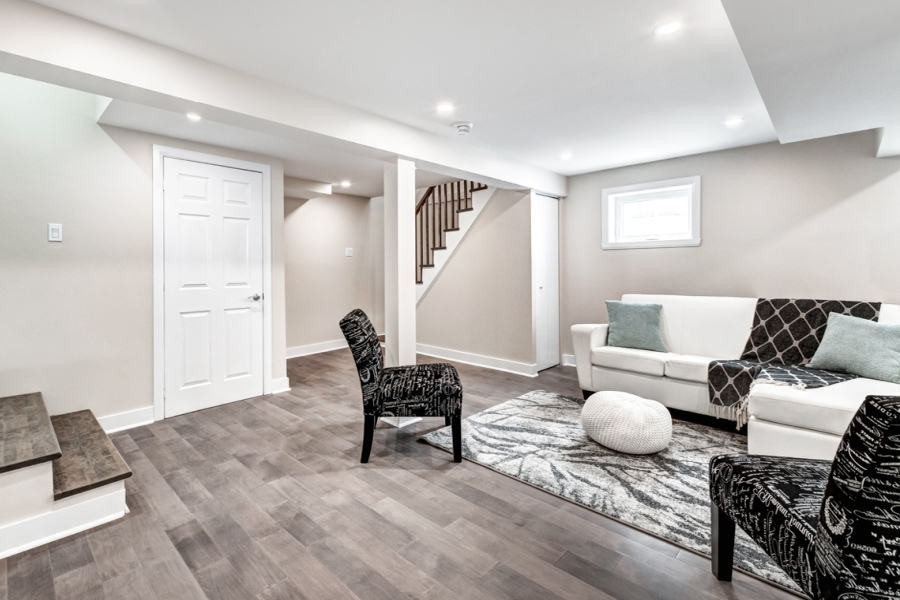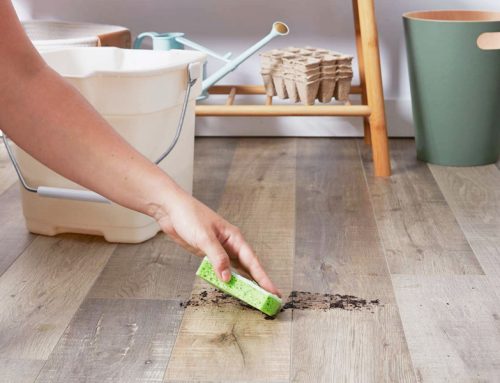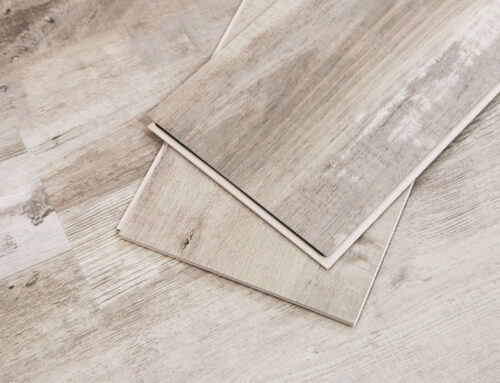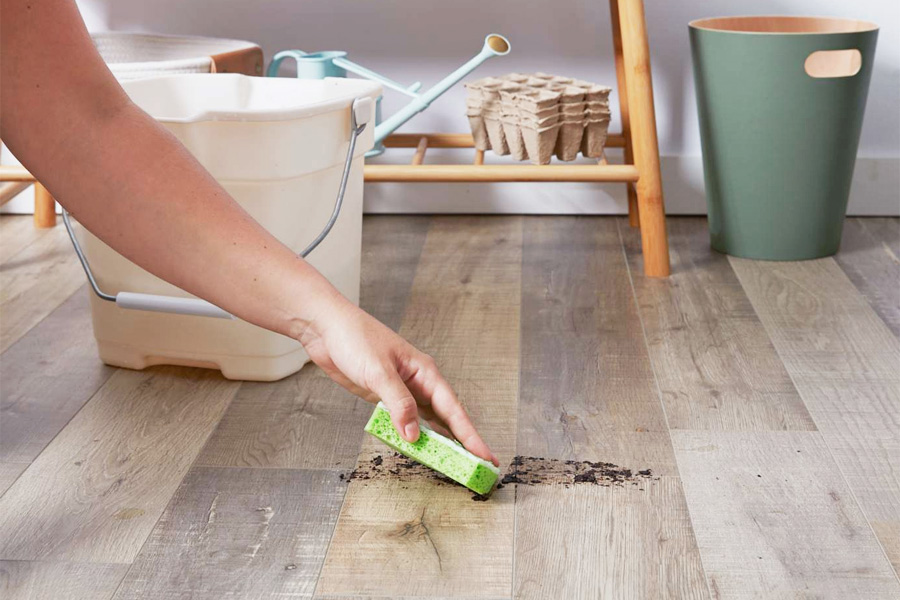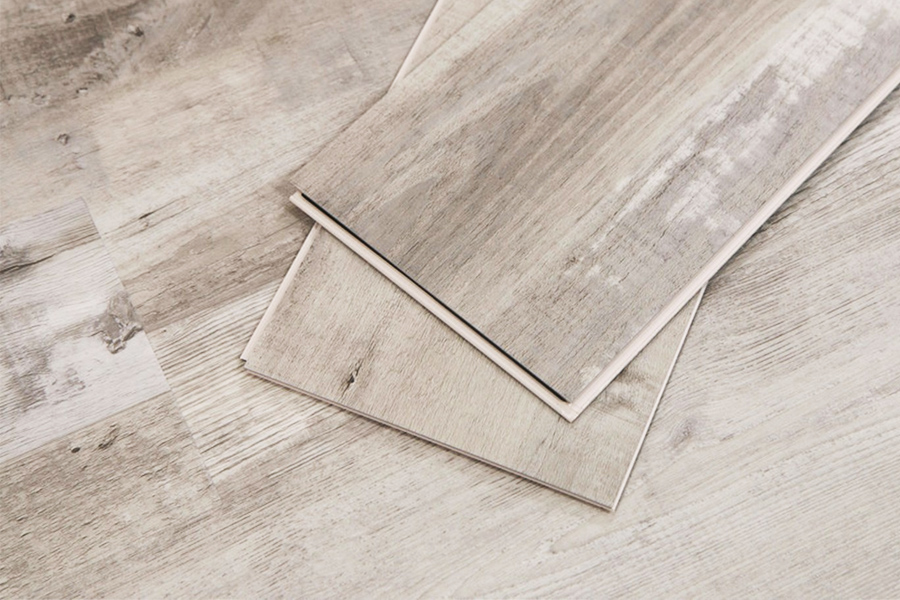Basement. The word itself might have a dingy and damp connotation, but the room has the potential to be so much more. At least, if you choose the best basement flooring.
Basements today can serve a multitude of purposes, such as a “man cave,” guest bedroom, play room, recreation room, entertaining area, home theater, laundry room, storage area – or any combination of these.
You’ll want to take into consideration how much foot traffic the floor will receive and, of course, moisture will also play a factor in your decision.
We’re happy to share some flooring styles that are ideal for a basement remodel – but be sure to follow our pro-tips to ensure success.
Tip: With any basement, you want the floor to be dry. Place a dehumidifier in the basement and make sure the area is clean and dry prior to installation. In addition, make sure the basement subfloor is properly sloped to eliminate water. It’s advised to do some waterproofing and install a drainage system (french drain and/or sump pump) before getting to the floor itself.
Once you’re ready to go, wall-to-wall carpeting is a great option for a den or living room-like feel, adding a sense of warmth and coziness. It can also be a good option for an ever-so-slightly uneven subfloor. Good padding will be key for both comfort and insulation from the cold concrete beneath. Often, Berber carpet is a good choice because it has a good tolerance for foot traffic, is stain resistant, aesthetically pleasing and comfortable. Be warned though, that pets’ nails can often snag the loops of Berber carpet, pulling them out of place. In this case, a carpet made with synthetic fibers may be a better option.
Luxury Vinyl Tile
This water resistant tile is warmer and softer than it’s ceramic tile counterpart – and it installs well over cement. It’s forgiving on wavy floors. Best of all, these vinyl tiles can emulate the look of wood, ceramic, stone or slate.
Laminate Flooring
This moisture resistant, easy-to-clean, easy-to-install flooring mimics the look of wood, stone, and ceramic tile. Certain grades of laminate flooring are specially treated to resist moisture.
Engineered Hardwood
It’s best to avoid traditional solid hardwood floors in a basement, but engineered wood features a top layer, which is a laminated veneer. The easy-to-clean engineered wood offers greater protection against humidity. Should your home flood, you do risk having to replace the wood and of having unseen mold buildup beneath the floor.
Looking for a more affordable basement flooring option? Consider Vinyl Tile or Linoleum flooring, which are both water resistant.
Have questions about your basement floor and want to learn more about your options? Reach out to our flooring experts by calling or visiting one of our area flooring stores.


